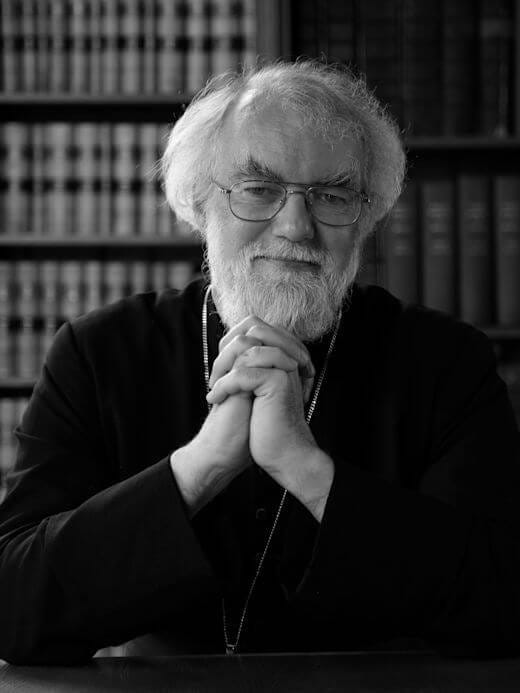The Case for Offline Events
The Realisation Festival 2024, St Giles House, Dorset, 27 - 30 June 2024
People are tired of being online.
I am about to invite you to join a gloriously offline event, buoyed by the conviction that the main purpose of the internet should be to get people offline. But first, the general premise:
The internet feels saturated, exhausted, and corrupted. There are still informative places, funny and cute things to share, and efficiency gains, but it all comes at a cost. Social media feels like an arena for hungry ghosts, artificial intelligence will further dehumanise and delegitimise shared digital spaces, we are estranged from our data, and many foresee a flood of deep fake videos washing away truth until all that’s left is the idle scroll and the aimless click.
Consider three extracts from recent posts from friends from the liminal web.
Alexander Beiner put it like this:
…Our exhaustion with the online world. The repetitive, meaningless expansion of content in so many parts of our lives. Millions of podcasts press against hypnotic Instagram feeds, which spew into the real world as people wearing Apple Vision Pros swipe at air in cafes and subways, immersed in their own digitally overlaid fantasies and utterly disconnected from the social fabric. I’m curious whether we’re moving toward 'The Great Unplugging’; a large-scale rejection of being online, and the mainstreaming of the idea that the internet is toxic.
Rachel Haywire put it like this:
I soon realized I was part of a new silent majority of people who had distanced themselves from the online world, or perhaps were never engaged with it in the first place. Our growing demographic is one that seeks solace in authentic connections, gravitating towards the allure of offline interactions. We are the lowbies, screaming into the void, humbling ourselves in the process. What happens next? We’ll be going offline to feel the connections that we once felt online, and this is exactly the protocol that will completely redefine social media. Social media in 2027 will not even resemble social media as it is today, because it will be entirely offline
Peter Limberg put it like this:
Everyone on the internet is starting to feel like the same person now. They operate under the same logic, employ the same strategies, and interview the same people. Winning attention intentionally has become a Pyrrhic victory, one that is not safe for the soul. I used to think I had to play this game, but now, playing it seems deeply foolish. One thing seems deeply true: the internet is starting to feel soulless.
The failed promise of the internet, particularly online events, is partly why I believe, in general, in supporting offline events and travelling to them whenever you can.
That premise is also why I invite you to consider The Realisation Festival in particular. Peter’s contention that the internet is starting to feel soulless is pertinent because we call Realisation a festival for the soul; that post after last year’s event is worth reading if you decide to come, as background to how the festival came into being.
It all happens in a physical place.
In case you don’t know places, you often have to travel to them. Unlike the shallow present of the two-dimensional screen, places have at least four dimensions: forward/backwards, up/down, left/right, and they’re situated in historical time. Places allow shared embodied experience to arise, collective memories to form, and culture to be inhabited. In the case of St Giles House in Dorset, there’s a fascinating philosophical and political back story, rooms with views, a pop-up tent community, and a beautiful landscape inviting you to lose yourself on the way to nowhere and find yourself on the way back.
And, get this: you can do extraordinary things with the other people there that you can’t do online, like exchange eye contact, shake hands, and even hug. There’s a sauna next to a stream (try doing that online) where people often keep company with the moon after dinner. The air is a kind of medicine, and you share all this bounty with beings from the more than human world. It can sometimes feel like the grass is greener at St Giles, though not always, because this is not ‘the other side’ - when you are there, you are there.
Realisation features great talks but some prefer the walks. There is poetry, live music, dance, visual art, and improvisation as an inclusive art form. I have been roped into doing a little chess this year, but you’ll have to find me amongst the trees, where the pieces originally came from, many centuries ago.
Realisation is our anglophone rendering of Bildung, a Germanic term that describes moral, civic and aesthetic education that is historically situated and socially purposeful. Realisation has three related meanings: roughly to get real, to become real, and to make real. Realisation is the simple but often profound ‘aha’ experience of becoming aware of something or beginning to understand it; but it is also the philosophical or spiritual (eudaimonic) sense of realisation of the self; and the achievement of making ideas manifest, for instance, to realise a personal dream.
The ‘get real, become real, make real’ relationship helps to structure the discussion in our small groups, which act as a lightly held buddy system to support you in processing the points of intellectual and emotional contact in the event. Many enduring friendships have been made in the process.
The full programme of this year’s event will be released shortly. I can already share that what’s a little different this year is that after some brief introductions, the event starts boldly with a cèilidh (pronounced kay-lee), and it includes a wide range of ‘discoveries’ which are informal and optional workshop offerings between the main sessions, mostly hosted outside.
We also have extraordinary plenary speakers.
Rowan Williams is the former Archbishop of Canterbury, an academic, poet, and one of Britain’s leading public intellectuals. He says things like: "The past is what the present is doing now." and "Truth makes love possible; love makes truth bearable”.
Ayisha Siddiqa is a Pakistani human rights and land defender serving as a Youth Climate Advisor to the UN Secretary-General. Ayisha was recognized on the cover of TIME magazine, as one of the Women of the Year 2023. She is also a poet and author of the exquisite: ON ANOTHER PANEL ABOUT CLIMATE, THEY ASK ME TO SELL THE FUTURE AND ALL I’VE GOT IS A LOVE POEM
by Ayisha Siddiqa
What if the future is soft and revolution is so kind that there is no end to us in sight.
Whole cities breathe and bad luck is bested by a promise to the leaves.
To withstand your own end is difficult.
The future frolics about, promised to no one, as is her right.
Rage against injustice makes the voice grow harsher yet.
If the future leaves without us, the silence that will follow will be an unspeakable nothing.
What if we convince her to stay?
How rare and beautiful it is that we exist.
What if we stun existence one more time?
When I wake up, get out of bed, my seven year old cousin
with her ruptured belly tags along.
Then follows my grandmother, aunts, my other cousins
and the violent shape of their drinking water.
The earth remembers everything,
our bodies are the color of the earth and we
are nobodies.
Been born from so many apocalypses, what’s one more?
Love is still the only revenge. It grows each time the earth is set on fire.
But for what it’s worth, I’d do this again.
Gamble on humanity one hundred times over
Commit to life unto life, as the trees fall and take us with them.
I’d follow love into extinction.
We also have television historian Bettany Hughes
and serial social entrepreneur Nat Wei.
And many others.
This year we are also delighted to welcome back ‘The Realisation Players’ who will beguile you with their capacity to create hilarious and insightful improvised songs from a handful of audience prompts. There will also be a chance for some to take part in a Perspectiva antidebate, detailed below with several scenes from the festival.
As a co-founder of the festival, I am biased, but it’s looking pretty good this year.
We try to keep well within Dunbar’s number to retain a human scale, so tickets will sell out quite soon and booking swiftly is advisable. Perspectiva offers a bursary programme for those who may struggle to afford a ticket - see details in the FAQ.
I hope you can join us, and I look forward to seeing you there.
Jonathan








Hi Jonathan I really like what you are saying about real relationships, however if you live outside the zone like the bottom of Africa technology gives you an in in a way you could never get [ a flight a visa accomodation etc is on an above average wage like a years wages and that if they let you in.] So for those nearby make them get there in person and for those far away stick up a few cameras in the rooms with good sound and let us gather together in a distant land and watch and have shared reflection time. This festival looks fantastic from the few videos i have seen of it